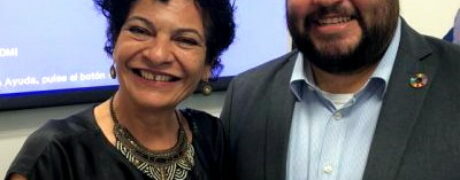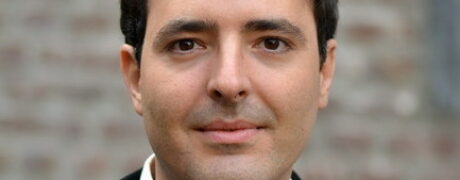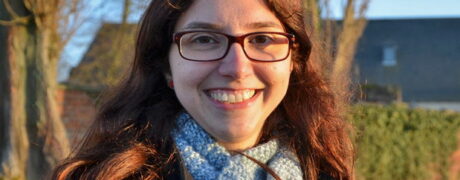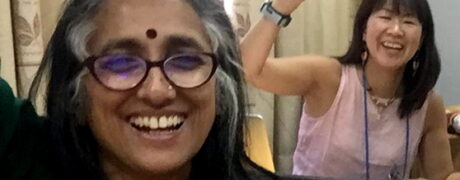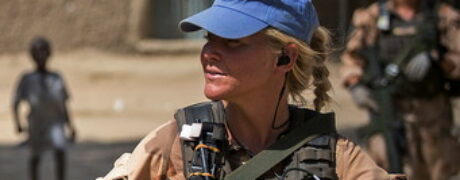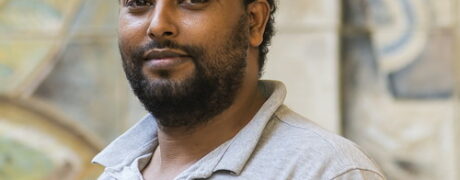News
Big data is changing our lives – but do they also change our research & policymaking?
12 December 2018
When I drive to work every day, most of my journey is recorded by cameras. Information about my route and speed of travel, as well as that of other people on the road at the time, can be used by governments to improve our national infrastructure, among many other things. It is the job of politicians...
Continue Reading →Why girls and women flee with birth control
12 December 2018
Migration risks bringing Europe to a breaking point. It is about refugee boats, borders, Islam — about us and them. These are themes that not only concern society and politics, but also science and academia. … For more than 13 years, Prof. Melissa Siegel has been working on the theme of ...
Continue Reading →The rise of the far right & anti-feminism: Gendered human security
11 December 2018
A joint post by Tamara Kool and Theresa Ammann In this blog post we connect the current political climate with our current research project that systematically analyses the existing literature on ‘Gender’ and ‘Human Security’. … The global rise of authoritarian movements and the entry of far-r...
Continue Reading →Revaluation of the welfare state: Wishful thinking?
11 December 2018
Imagine you, a researcher, are given a bag of money, unlimited time and personnel. What research would you do? Dr. Zina Nimeh, university lecturer of Social Protection and Human Development, wants to discover why people no longer appreciate the welfare state. … Solidarity is the basis of the w...
Continue Reading →Ukraine expert: Nobody will stop Russia if it wants to invade
10 December 2018
The Russian navy captured three Ukrainian military vessels and detained about 20 soldiers in the Kerch Strait in November 2018. Since Russia annexed Crimea in 2014, the Russians have controlled this unique passage — shared by both countries — between the Black Sea and the Sea of Azov. ...
Continue Reading →How one short course helped me become more efficient, systematic & structured
28 November 2018
I had been searching for a programme that allowed me to combine my specific research interests with a rather busy work schedule. The blended format with in-person classes and distance learning modules worked very well for me, by providing a good balance between flexibility of schedule and the opport...
Continue Reading →Speaking truth to power & parliaments: Melissa Siegel
27 November 2018
Our researchers regularly give policy recommendations to the UN and its Member States — not just in emerging economies but also across Europe. In November 2018, Prof. Melissa Siegel spoke before the Second Chamber of the Dutch Parliament, where she briefed members on the migration situation, s...
Continue Reading →Science for ‘We, the People’ — ‘R&T’ Latin America & Caribbean 2018
26 November 2018
For this sixth edition of our Science Reporting Workshop, Reach and Turn, we partnered with UNESCO, the City of Knowledge Foundation, and the National Secretariat for Science, Technology and Innovation — returning to Panama as a side event of the second Latin America and Caribbean Open Science...
Continue Reading →Steering the course of innovation – towards sustainable development
23 November 2018
A joint post by Profs. René Kemp and Shyama V. Ramani From entertainment to healthcare, innovation is everywhere. Yet, what is the end goal of all these new products and processes — and what should be the EU’s policy priorities? Should ‘we’ improve sustainability among rich c...
Continue Reading →Social protection interplay: Tracking people’s preferences and institutional policies
20 November 2018
I’ve worked for UNICEF on programme planning, monitoring and evaluation, focusing not only on countries in development but also humanitarian contexts. This has given me a deep understanding of how to tailor programmes in order to ensure a timely and effective response – especially in emergency situa...
Continue Reading →Education does not always equal social mobility
20 November 2018
A joint post by Prof. Louis Volante and Dr. John Jerrim Educators around the world, particularly those in secondary schools, often default to a compelling story when they are trying to motivate their students: Work hard, achieve well and you will secure a successful future with attractive job prospe...
Continue Reading →How I won an award for Brazilian development: Flavia Filippin
19 November 2018
My research was about a set of public policies to support the semiconductor industry in Brazil. These policies started to be designed in the early 2000s, when it was identified that developing a semiconductor industry in the country would foster innovation in the electronics industry. The latter was...
Continue Reading →A long and winding road? Driving long-term value through open education
15 November 2018
Over the course of the year, we rolled out the SMART Choices and SMART Tools education project — which is finally available now via the Blackboard Open Education portal. SMART Choices is a collection of six online courses based on our MPP academic tracks: a set of courses designed to help stud...
Continue Reading →A global nudge for sustainable development: Globelics 2018
06 November 2018
A joint post by Prof. Shyama V. Ramani and Dr. Sanae Okamoto ‘The road to hell,’ goes the age-old proverb ‘is paved with good intentions’. In the 21st century, there can be no clearer example of this than the millions of underused or abandoned toilets in the developing world built for Sustainable De...
Continue Reading →Mygration Story: Escaping conflict, embracing education — but never forgetting our roots
31 October 2018
Sofia Luz Castaneda was the daughter of a wealthy family in Guatemala, a country in Central America. Her father was a farmer, who employed many men to cultivate his lands. However, one day, one of her father’s employees caught her eye – Samuel Bonilla. Sofia and Samuel fell in love, yet their union ...
Continue Reading →Missing the wood for the trees: How the Amazon is key to the climate change struggle
29 October 2018
My research addresses the problem of deforestation and forest preservation in Brazil. This country has the largest stretch of tropical forest in the world. Surprisingly, and this is good news for once, Brazil has reduced yearly deforestation levels dramatically over the last decade. Since the Rio Co...
Continue Reading →Another coffee and a career? How international knowledge workers fuel local economic growth
26 October 2018
Labour market experts Inge Hooijen and Julia Reinold researched the mobility intentions and behaviour of graduates in the Meuse–Rhine Euroregion – the borderlands of Belgium, Germany and the Netherlands – and found that big life decisions are down to more than an attractive labour market. “Obviously...
Continue Reading →United Nations Day 2018: ‘A global response to conflict and climate change’
24 October 2018
A UN Day 2018 message from UNU Rector and UN Under-Secretary-General David M. Malone. ••• The United Nations of 2018 exists in a world that is more interconnected than ever before. Countries are no longer insulated from the setbacks and challenges of other nations, and all profit in some way from ea...
Continue Reading →A Nuffic scholarship paved the way to my PhD: Jemal Adem
17 October 2018
I found out about the UNU-MERIT PhD programme through an online scholarship subscription. Initially, I was a bit surprised that governance and economics could be combined to form a single PhD programme – but then I saw how the two tracks work side-by-side in a complementary way....
Continue Reading →It’s not the winning but the taking part: How applying for competitive grants benefits researchers
15 October 2018
“The most important thing in the Olympic Games is not the winning but the taking part.” So goes the famous saying by Pierre de Coubertin, father of the modern Olympic Games. But does the same apply for competitive research grants? UNU-MERIT’s Fabiana Visentin joins co-authors Charles Ayoubi an...
Continue Reading →© 2024 UNU-MERIT | Maastricht University









